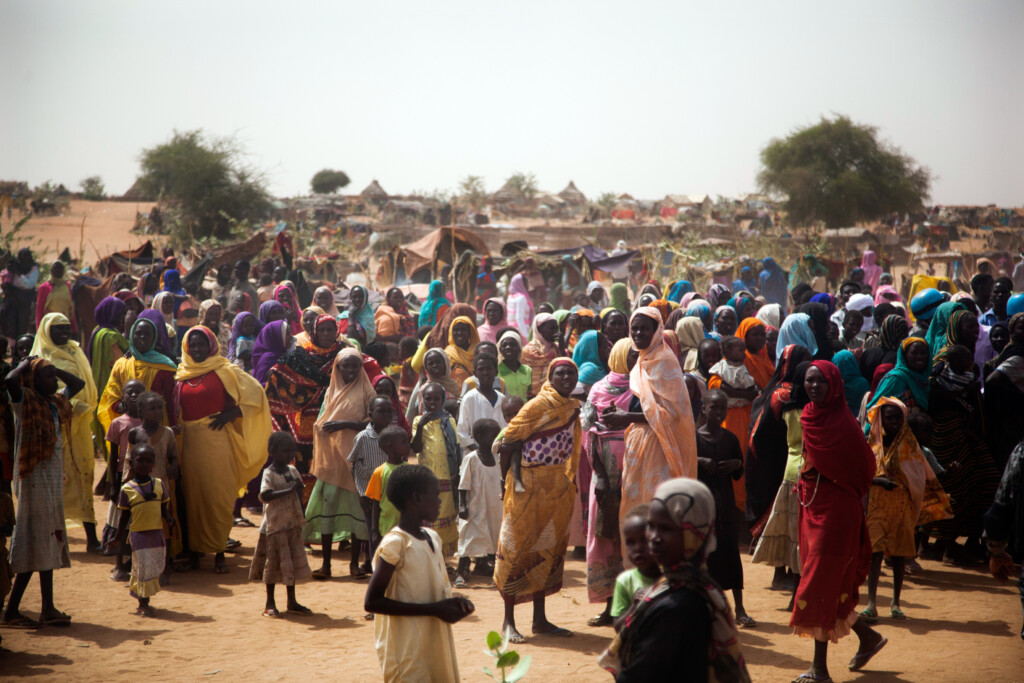Panicked public flee fierce North Darfur fighting

Displaced people in Zamzam camp in El Fasher, North Darfur (File photo: Albert González Farran / UNAMID)
Clashes renewed between the Sudan Armed Forces (SAF) and the Rapid Support Forces (RSF) in El Fasher, capital of North Darfur, yesterday. The violence caused the residents of El Salam camp for displaced people to flee once again in search of safe areas.
The Sudanese Air Force launched air strikes on RSF formations in the eastern part of the city. A listener told Radio Dabanga that they heard the sounds of explosions and the sounds of ground-based anti-aircraft fire from eastern El Fasher, “which sparked a wave of fear and panic among the people”.
He said that there are conflicting reports about the SAF forces being defeated. Radio Dabanga has not been able to independently verify this.
Large numbers of people from the El Salam camp, better known as Abuja camp, in northern El Fasher, fled in search of safe areas. Bombs and missiles hitting the camp led to the death and injury of many displaced people, however exact numbers have not been released.
A source from El Fasher said the people who have been displaced once again are in a dire humanitarian situation. “They have no food or shelter, along with the extreme cold these days, which may lead to the death of a large number of them unless humanitarian organisations intervene.”
At least four people were killed and 14 wounded when clashes flared in El Fasher on February 1, after days of relative calm. Residents of the city voiced fear that rebel combatants may be drawn into the fighting.
Médecins Sans Frontières (MSF) reports that Zamzam camp in North Darfur is in a “catastrophic situation“, and that the security and humanitarian situation in Central Darfur “continues to deteriorate.” The General Administration of Camps for Displaced People in South Darfur has expressed great concern about “the catastrophic and terrible humanitarian situation” of displaced people and refugees.
Radio Dabanga reported in November last year about fears that rebel combatants will get involved in the fighting. Journalist Malik Dahab said that the RSF and the armed rebel groups do not want to fight each other because it will be the end of one of them. “The North Darfur capital is the last card for the rebel movements,” he said. “If they lose the fight, they will fade away, as the movements look at the North Darfur capital as the only shelter where they exist as movements that signed the Juba Peace Agreement”.
Moreover, the RSF taking control of the city would reportedly also ignite strife between the Arab tribes supporting the RSF, and the Zaghawa tribe, from which most fighters of the SLM factions and the JEM hail. Zaghawa leaders have allegedly contacted Chadian President Mahamet Deby, also a Zaghawa, and asked him to intervene to convince the RSF not to enter El Fasher, to avoid a “catastrophic bloodbath“ in the area.
Last year, the RSF took control of the capital cities of the other Darfur states, Nyala and Zalingei in late October, and El Geneina and Ed Daein a month later. SAF-RSF fighting had already occurred in El Fasher, but the governor of the state, a former rebel leader, managed, together with native administration leaders, civil society activists, police officers, and women and youth groups to make the warring parties agree on a ceasefire and extend it more than once in the state.











 and then
and then